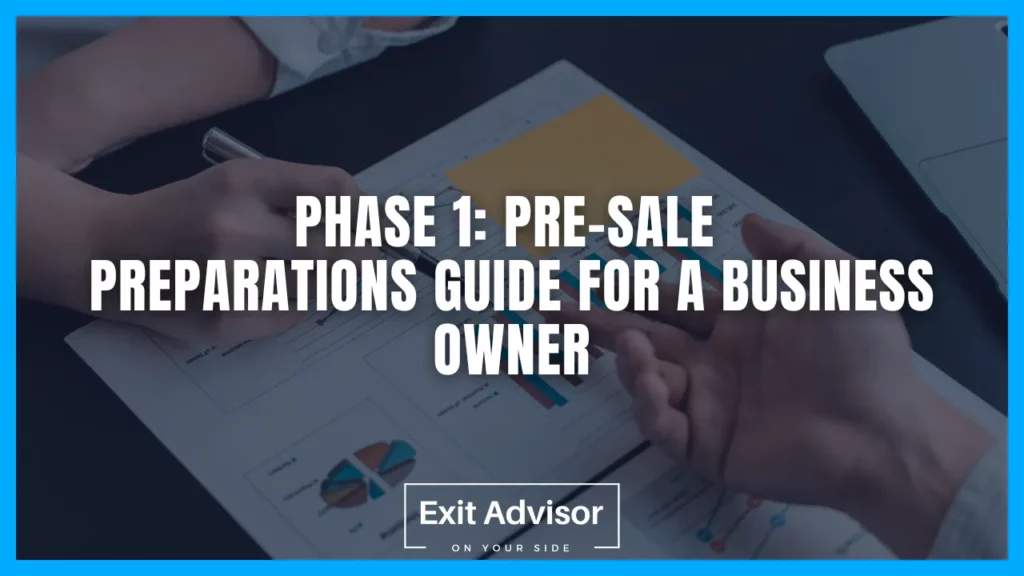When selling a business, one question often arises: “What happens to the cash?” It's a crucial topic that can greatly influence the sellers' and buyers' decisions.
Cash is typically not considered part of the assets in the sale when selling a business. In other words, all cash remains with the selling business owner. This encompasses physical petty cash and funds in bank accounts and cash equivalents.
Therefore, as a seller, you retain full ownership of these monetary resources even after the business sale.
The business selling process is complex, with many aspects to consider, and the question of cash can often be overlooked. However, understanding how cash is handled during this sale transaction can be the key to a successful deal.
This guide will delve into what happens to the cash when selling a business. Whether you're a seasoned business owner or just starting, this information could prove invaluable.
I'll break down the process in simple, easy-to-understand terms, helping you navigate this confusing landscape. So, let's start our journey towards understanding the fate of cash in a business sale.
What is Considered Company Cash?
Company cash is the money a business can access and use immediately. This includes the money in its bank account(s), petty cash, and any cash equivalents such as treasury bills, commercial paper, or money market funds.
Essentially, it's any money that the company can readily use to pay for its immediate expenses. It's a crucial component of a company's liquidity and can impact its financial health.
Is Cash an Asset in a Business Sale?
Yes, cash is often considered an asset in a business sale. When selling a business to a competitor, the entire business's assets – tangible and intangible are often included in the sale. Tangible assets include physical items like machinery, buildings, and cash.
On the other hand, intangible assets include non-physical items such as customer lists, patents, or brand recognition. The inclusion or exclusion of cash in the business sale can significantly impact the valuation of the business.
However, the final agreement between the buyer and seller will determine whether the cash stays with the seller. Both parties must have clear discussions about cash handling to avoid misunderstandings later.
Phase 1: Pre-Sale Preparations Guide For a Business Owner

Preparing your business for sale involves several critical steps, including managing company cash. Ensuring the business's healthy financial status can significantly enhance its market business valuation, attract potential buyers, and facilitate a smooth transaction.
Extracting Cash When Selling a Business
Before selling, owners often extract excess cash from the business. These funds, not necessary for operations, can serve as a bonus or retirement fund. However, this must be done carefully to avoid devaluing the business.
How to Prepare for Sale: Managing Business Cash and Bank Accounts
Effective cash and bank account management is crucial during the sale preparation. Regular audits, maintaining robust financial records, and demonstrating consistent income can ensure your company’s finances are stable.
Dealing With Cash Flow
A healthy amount of money from the sale indicates a thriving business. Regular assessments can highlight potential issues, which should be addressed promptly to maintain buyer trust.
Ensure you've all the documents that contain the record for the cash and debt and show an aligned structure of your business. This will represent that you have a clear record of debt and cash, business sale transactions, money in the bank, including petty cash, and other finance.
Ultimately, when you show a business with no existing debt and a smooth cash record, dealing between both parties goes fine.
Transferring Business Bank Accounts
Business bank accounts are typically transferred to the new owner upon sale completion. This process involves several legal and financial procedures to ensure a transparent transition.
Phase 2: The Sale Process

The sale process tends to be a complex and multifaceted journey involving numerous aspects that can profoundly influence the transaction's outcome. As we delve into this crucial stage, we will explore every detail that encapsulates the sale process, providing you with comprehensive knowledge to navigate this intricate landscape successfully.
From determining who gets accounts receivable to what happens when you sell your business, every facet will be covered in depth to provide you with a holistic understanding of the process. Further, with this guide, you'll learn how to manage business sales without a broker so that you can manage your accounts professionally.
Who Gets Accounts Receivable When Selling a Business?
Accounts receivable, which represents the money owed to a business by its customers, plays a vital role in a business sale. The buyer and seller must typically agree on who gets the accounts receivable. Usually, the buyer and vendor need to make a mutual decision on allocating the outstanding invoices.
In most cases, the seller retains them, as they represent sales made and work performed under their ownership. However, it may be included in the business's sale in some instances, especially if the buyer believes they can collect the debts more efficiently. This decision significantly impacts the business's valuation and purchase price, requiring careful consideration and negotiation.
What Happens When You Sell Your Business?
When you sell your business, several things occur. Firstly, ownership rights are transferred from the seller to the buyer. This transfer includes all assets, liabilities, and operational responsibilities unless specified otherwise in the sale agreement.
Depending on the terms, the seller receives the agreed-upon payment, which may be a lump sum or scheduled payments.
After that, the buyer assumes control, making all decisions and bearing all risks associated with the business. They may choose to maintain the existing business structure or implement changes as they see fit.
For the seller, this milestone typically marks the end of their association with the business, enabling them to pursue other interests or ventures. However, in some cases, the seller may continue to be involved in a consultancy or advisory capacity.
Asset Sale of Business: Overview and Mechanics
An asset sale in business transactions refers to the process wherein the seller of a business sells its assets rather than the stock or equity. This could include tangible assets such as equipment, inventory, and property, as well as intangible ones like patents, trademarks, and customer lists.
Typically, liabilities are not transferred to the buyer in an asset sale, making this a popular option for buyers as it reduces potential risks associated with the business's debts.
One key aspect to consider in an asset sale is allocating the purchase price among the various assets, which can have significant tax implications for both parties. The process necessitates careful planning, due diligence, and legal compliance to safeguard the interests of all parties involved.
Asset Sale vs. Stock Sale: Pros and Cons
In an asset sale, the buyer purchases specific assets and liabilities, while in a stock sale, the buyer purchases the entire company, including all of its assets and liabilities. Each has its pros and cons.
- Asset Sale
An asset sale provides more flexibility for the buyer, who can pick and choose the assets and liabilities they wish to acquire. This can limit exposure to potential unknown liabilities. However, it may involve a more complex transfer process, as each asset must be individually transferred to the new owner. - Stock Sale
A stock sale simplifies the transfer process because ownership of the entire company is transferred to the buyer. There's no need to transfer assets or renegotiate leases and contracts individually.
Negotiating The Cash Assets During The Sale Of Your Business
Cash assets often play a critical role in negotiating a business sale. While the seller might prefer to keep the cash assets, the buyer might want to acquire them as they can serve as a buffer for post-acquisition operational costs.
However, including cash in the sale could potentially inflate the business's overall price, which might be outside the buyer's best interest. This fact highlights the substantial impact that cash assets can have on the negotiations and the final sale price. In light of this, it is recommended for both parties to engage financial advisors to ensure a fair and equitable transaction.
Ultimately, the decision on cash assets should be guided by the strategic objectives of both the buyer and seller, the business's financial health, and the prevailing market conditions.
Phase 3: Financial Considerations in a Business Sale

How Much Cash to Leave When Selling a Business?
Deciding how much cash to leave in the business when selling largely depends on the negotiated terms. Some agreements may dictate that the seller withdraws all cash before the sale, while others may include cash on hand as part of the sale.
Leaving cash in the business could ease the transition for the buyer, providing an immediate cushion for operating expenses and may increase the overall sale price. However, this should be balanced against the seller's need for liquidity post-sale.
Tax Implications to Consider When Selling a Business
Selling a business has substantial tax implications to consider. Depending upon the structure of the sale (asset vs. stock sale), type of business, and the nature of the assets being sold, the seller may face various taxes, including capital gains tax, depreciation recapture tax, and potentially state and local taxes. It's crucial to consult a tax advisor to understand and plan for these tax liabilities.
Capital Gains Tax
The Capital Gains Tax is a major consideration when selling a business. This is a tax on the profit from selling certain assets, including businesses. If the business's selling price exceeds its purchase price, the difference is considered a capital gain, and tax is owed on this amount. The rate of capital gains tax you pay can vary based on how long you've owned the assets and your tax bracket.
Structuring the Sale for Tax Savings
Strategically structuring the sale of a business can lead to significant tax savings. This could involve classifying the sale as an asset or stock sale or using specific tax provisions, such as installment sales or Section 1031 “like-kind” exchanges. Each strategy has implications, benefits, and drawbacks, hence the need for professional tax advice to ensure the best possible outcome.
The Role of Sale and Purchase Agreements
Sale and Purchase Agreements (SPA) play a fundamental role in business transactions, providing a legal framework that outlines the terms and conditions of the sale. This includes the purchase price, the assets and liabilities included in the sale, and instructions about cash distribution.
The SPA also stipulates both parties' rights, responsibilities, and obligations. Given the complexities involved, consulting with legal and financial advisors is crucial when drafting and reviewing the SPA.
Negotiating the Allocation of Cash
Negotiating cash allocation during a business sale can be complex, requiring careful attention and strategic decision-making. Buyers and sellers must consider their financial positions, strategic objectives, and business environment.
For instance, in a turbulent economic climate, the buyer may prefer to keep more cash in the business as a safety net. Conversely, the seller might need the cash for their next venture or retirement. These negotiations should aim for a fair outcome that accounts for both parties' needs while ensuring the viability and sustainability of the business post-sale.
Phase 4: Post-Sale Details

What Happens to Cash in the Bank When You Sell a Business?
The Sale and Purchase Agreement terms determine the fate of cash in the bank during a business sale. If the agreement stipulates that cash on hand is part of the sale, the buyer will inherit the remaining cash in the bank. However, if the cash is not included in the sale, the seller will usually withdraw the funds before the completion of the transaction.
Sale of Account Receivable
The sale of accounts receivable involves the selling of unpaid customer invoices. It could happen independently or be a part of the business sale. The buyer assumes responsibility for collecting these debts if it's included in the business sale.
The benefit for the buyer lies in the immediate cash flow once the invoices are paid. However, if the outstanding accounts are not part of the sale, the seller retains the right to collect the debts even after selling the business.
When You Sell a Company, Who Gets the Money?
The proceeds typically go to the business owner or shareholders when you sell a company, depending on the business structure. If the business has outstanding debts, creditors may have a claim on a portion of the sale proceeds. The precise distribution of funds will depend on the agreements in place and the business's financial standing at the time of sale.
What Happens to Accounts Payable When a Business is Sold?
Like with accounts receivable, the fate of accounts payable (money owed by the business to its suppliers or other parties) when a business is sold depends on the terms of the sale.
If the accounts payable are included in the sale, the buyer assumes the business's outstanding debts. If not, the seller must settle all outstanding debts before completing the sale. A clear agreement and thorough due diligence are vital in both scenarios to avoid surprises and ensure a smooth transition.
Understanding Business Assets and Liabilities in a Sale
Understanding the value and nature of assets and liabilities is essential to determine the business's worth and set a realistic sale price. It also influences the tax implications of the sale.
Buyers need to conduct a thorough due diligence process to assess the quality and value of assets and understand the extent of liabilities, as these factors will directly impact the profitability and risk profile of the business post-sale.
Assets Included in a Business Sale
The assets included in a business sale can vary based on the terms agreed upon by both parties. These could include physical assets such as machinery, inventory, and office equipment or intangible assets such as trademarks, patents, and customer databases. It's crucial for both the buyer and seller to have a clear agreement about which assets are included in the sale to avoid discrepancies and misunderstandings in the future.
Liabilities and Debts in a Business Sale
Liabilities and debts are as significant as assets in a business sale. The seller is typically responsible for debts and liabilities until the point of sale unless otherwise agreed upon. These could include loans, lease agreements, or accounts payable.
However, in some cases, the buyer might agree to assume some or all of the business's debts as part of the sale agreement. This could influence the final sale price and should be carefully considered by both parties during negotiations.
Common Challenges and Solutions in Handling Cash During a Business Sale

Ensuring Transparency and Trust
Transparency and trust are crucial to both parties involved during a business sale. The buyer must clearly understand the business's financial health, cash flow, assets, and liabilities.
Therefore, the seller must provide accurate and comprehensive financial statements, including balance sheets and cash flow statements. This transparency builds trust, facilitates smoother negotiations, and can ultimately lead to a successful sale.
Addressing Disputes Over Cash Distribution
On the other hand, addressing disputes over cash distribution can be a challenging aspect of a business sale. These disputes can arise due to differing interpretations of the Sale and Purchase Agreement or disagreements regarding the valuation of assets and liabilities.
To prevent such disputes, it's advisable to have a clear and detailed agreement specifying the terms of cash distribution.
Additionally, involving a neutral business broker or legal advisor can help resolve these disagreements effectively and ensure a fair outcome for both parties.
Frequently Asked Questions
Who Gets the Money When a Company is Sold?
When a company is sold, the money primarily goes to the company's owner, depending on the structure of the business. However, if there are any outstanding debts or liabilities, these often need to be settled first. Creditors may have a claim on a portion of the sale proceeds. The sale agreements and the business's financial standing at the time of sale determine the distribution of funds.
Who Gets the Cash in an Asset Sale?
The cash goes directly to the selling entity in an asset of the business sale unless otherwise stated in the sale agreement. The amount of cash from the sale of the assets is used to pay off any debts and liabilities. After all obligations have been met, the remainder, if any, goes to the owner or the shareholders.
What is the Role of Sale and Purchase Agreements in Determining the Fate of Cash During a Business Sale?
Sale and Purchase Agreements (SPA) are critical in determining the fate of cash during a business sale. They outline the terms of the sale, including the price, payment structure, and which assets and liabilities are included. If cash is being transferred as part of the sale, it would be detailed in the SPA. The agreement helps avoid confusion and disputes over cash distribution.
How Does the Business Structure Affect Cash Distribution During a Sale?
The business structure significantly impacts how cash is distributed during a sale. The proceeds generally go directly to the owners or partners in a sole partnership. In contrast, in a corporation, the sale proceeds are usually distributed to the shareholders after all liabilities have been paid. The specifics of cash distribution can also depend on the terms outlined in any existing operating agreements or bylaws.
Conclusion
Dealing with cash in a business sale is a complex process that demands transparency, careful planning, and mutual agreement between the buyer and the seller.
The distribution of cash and other assets and settling liabilities depends significantly on the terms of the Sale and Purchase Agreement and the business structure. Ensuring a comprehensive understanding of these elements can help prevent disputes and facilitate a smooth transition during the business sale.
Most importantly, a successful business sale ultimately benefits both parties – providing the seller with a fair return on their investment and giving the buyer confidence in the profitability and stability of their new venture.
Thus, it is critical to approach the sale with a clear and informed perspective to safeguard your financial interests and ensure a successful outcome.










